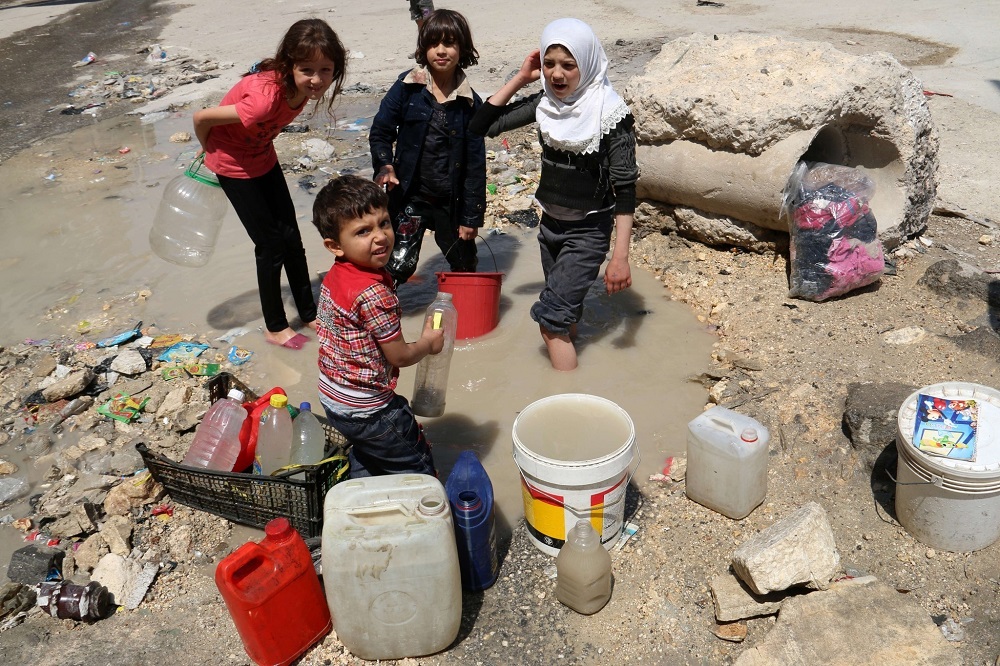The World Bank urged the Middle East and North Africa on Tuesday to take “urgent” action to prevent the negative consequences of inadequate supply of water and sanitation.
It said that the region loses about $21 billion over these issues, saying that urgent action will prevent detrimental ripple effects on growth and stability.
“As the current conflict and migration crisis unfolding in the Middle East and North Africa shows, failure to address water challenges can have severe impacts on people’s well-being and political stability,” the bank said in a report issued at the World Water Week conference in Stockholm, Sweden.
Poor management of water resources and sanitation in the world’s most water-scarce region costs about 1 percent of its annual gross domestic product, with conflict-hit states losing as much as 2 to 4 percent each year.
Deaths due to unsafe water and sanitation in some parts of the region, particularly countries affected by conflict, are higher than the global average, it added.
With the urban population in the region expected to double by 2050 to nearly 400 million, a combination of policy, technology and water management tools should be used to improve the water situation, the report said.
“Water productivity – in other words, how much return you get for every drop of water used – in the Middle East in general is the lowest on average in the world,” said Anders Jägerskog, a specialist in water resources management at the World Bank and one of the report’s authors.
Middle Eastern and North African countries are using far more water than can be replenished, said the report, dubbing the region “a global hotspot of unsustainable water use”.
To reverse the trend, technology and innovation are “essential but not enough”, Jägerskog told the Thomson Reuters Foundation. Water governance – in particular, water tariffs and subsidies – must also be addressed, he said.
The region has the world’s lowest water tariffs and spends the highest proportion of GDP on public water subsidies. Such policies lead to excessive use of already scarce water supplies and are not sustainable, said Jägerskog.
Water scarcity also can spark conflicts, the report warned.
Another challenge is that more than half of the wastewater collected in the region is fed back into the environment untreated.
“Along with better water management, there is room for increasing the supply through non-conventional methods such as desalination and recycling,” Guangzhe Chen, senior director of the World Bank’s global water practice, said in a statement.
Improved water management could bring considerable financial returns, the report noted. Jordan and Tunisia already safely reuse waste water in irrigation and to replenish supplies, according to the World Bank.
Governments could gain $10 billion annually by improving the storage and delivery of irrigation water to users, while increasing agricultural production by up to 8 percent, the report said.
Egypt, Syria and Iran – which have the largest proportion of irrigated land in the region – are the countries that could benefit most, it added.
